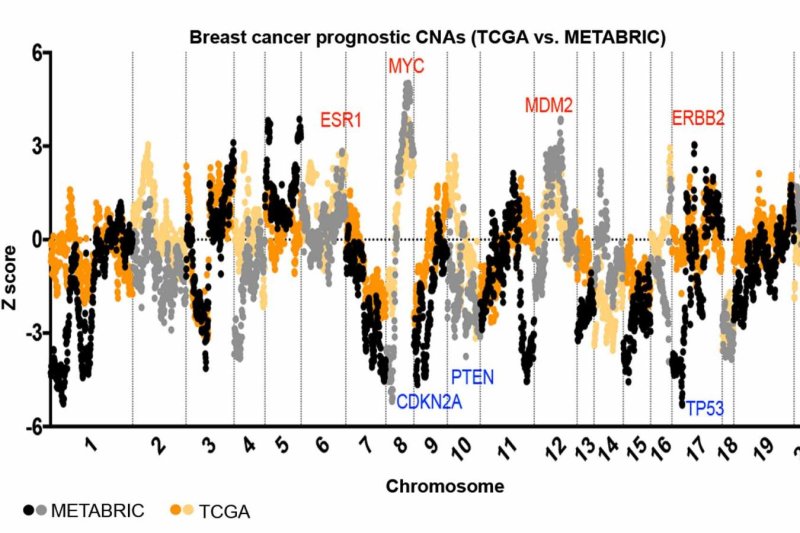Researchers say that a higher number of changes in gene copy numbers can determine the likelihood of that aggressive or malignant cancer gene. Photo by Sheltzer/CSHL 2018
Dec. 11 (UPI) -- A cancer diagnosis can often start a patient down a long road of uncertainty.
Now, researchers at Cold Spring Harbor Laboratory say they can predict how aggressive a cancer diagnosis will be by pinpointing a certain class of its biomarkers.
The researchers published their findings Tuesday in the journal eLife, where they traced the cancer history and outcomes of nearly 20,000 patients, while also studying the genetic sites that cancer-causing mutations dwell.
"There are undoubtedly dozens or hundreds of mutations that cause cancer, and that can be found in almost any tumor," said Jason Sheltzer, CSHL Fellow and study author, in a news release. "That's why it was surprising to discover that these mutations are pretty evenly distributed in early-stage benign cancer as well as in the really aggressive, highly-malignant cancers."
That means mutations don't tell doctors much about the rate of survival of that form of cancer.
"A lot of cancers instead of having two copies of a gene, will have three copies, four copies, five copies, or only one copy of a gene instead," explained Sheltzer. "We looked at the relationship between these copy number alterations and what happens to cancer patients and found a strong relationship."
The genetic information in healthy human cells is laid out in two copies along 23 pairs of chromosomes. But cancer cells can gain or lose chromosomes.
Normally, the genetic information in a human cell comes in two copies distributed among 23 pairs of chromosomes. However, cancer cells often gain or lose chromosomes.
Sheltzer said that a higher number of changes in gene copy numbers may determine the likelihood of an aggressive or malignant cancer gene.
"That would be one of the first steps towards taking what we've learned and translating it into a clinically useful tool that could also provide patients with peace of mind," Sheltzer said.















